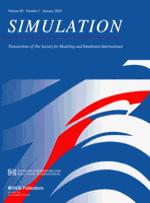A hybrid agent-based model for estimating residential water demand
Abstract
The global effort toward sustainable development has initiated a transition in water management. Water utility companies use water-pricing policies as an instrument for controlling residential water demand. To support policy makers in their decisions, the authors have developed DAWN, a hybrid model for evaluating water-pricing policies. DAWN integrates an agent-based social model for the consumer with conventional econometric models and simulates the residential water demand-supply chain, enabling the evaluation of different scenarios for policy making. An agent community is assigned to behave as water consumers, while econometric and social models are incorporated into them for estimating water consumption. DAWN’s main advantage is that it supports social interaction between consumers, through an influence diffusion mechanism, implemented via inter-agent communication. Parameters affecting water consumption and associated with consumers’ social behavior can be simulated with DAWN. Real-world results of DAWN’s application for the evaluation of five waterpricing policies in Thessaloniki, Greece, are presented.
Download full text in pdf format
 Published as:
Published as:
I. N. Athanasiadis,
A. K. Mentes,
P. A. Mitkas,
Y. A. Mylopoulos,
A hybrid agent-based model for estimating residential water demand,
Simulation - Transactions of The Society for Modeling and Simulation International, 81:175-187,
2005, doi:10.1177/0037549705053172.
You might also enjoy (View all publications)
- BloomBench: A Multi-Species Benchmark for Evaluating the Generalization of Fruit Tree Phenology Models
- Corn yield estimation under extreme climate stress with knowledge-encoded deep learning
- Causal machine learning methods for understanding land use and land cover change
